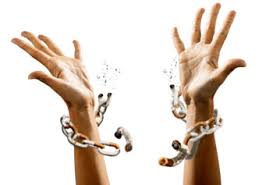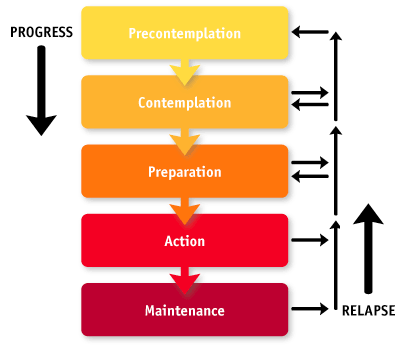|
IMPLICIT BIAS
According to the folks at trustandjustice.com,
"Implicit bias describes the automatic association people make between groups of people and stereotypes about those groups. Under certain conditions, those automatic associations can influence behavior-making people respond in biased ways even when they are not explicitly prejudiced." Research demonstrates that implicit bias exists even where heartfelt bigotry does not; this can cause individuals and institutions to act on prejudices, creating harmful impacts.
Harvard's Project Implicit provides a number of online self-tests that reveal potential biases related to race, gender, age, weight, sexuality, and more.
The Stanford Encyclopedia of Philosophy gives the example of Frank, a man "who explicitly believes that women and men are equally suited for careers outside the home. Despite his explicitly egalitarian belief, Frank might nevertheless implicitly associate women with the home, and this implicit association might lead him to behave in any number of biased ways, from trusting feedback from female co-workers less to hiring equally qualified men over women."
Identifying implicit bias is
the first, best step to beating it. "Those of us working on this issue have made great progress getting beyond the blame game-making it clear that implicit bias is not the same as 'racism,' that its effects are, by definition, unintentional," says Jack Glaser, a psychologist at UC Berkeley's Goldman School of Public Policy.
Theodore Johnson is a black writer who took an implicit association test and was shocked to learn he had a strong automatic preference for European Americans compared to African Americans. He writes, "If each of us is willing to recognize our implicit biases and police our actions accordingly, there may be hope for the racial aspect of the American experiment after all." Johnson continued to re-take the implicit bias test and train his mind in a different direction; by his fourth and final attempt, he exhibited no racial preference at all.
Counselors at CCCG take the topic of implicit bias seriously and strive to be aware of how their attitudes impact the counseling process. Our counselors have recently attended trainings related to implicit bias, cultural competency, cultural humility and healing wounds related to racism. If you or someone you know has been hurt by explicit or implicit bias, a CCCG counselor can help.
|
|

When someone is caught in the bondage of addiction, it may seem as if nothing will help. More than twenty years ago, researchers Carlo C. DiClemente and J. O. Prochaska introduced a Stages of Change model that continues to be a gold standard in helping professionals understand their clients with addiction problems and motivate them to change.
The Stages of Change are based on observations about how people modify problem behaviors such as smoking, overeating and abusing substances. The stages are:
- Precontemplation - The person may be uninformed or under-informed about the consequences their behavior; they may be demoralized from failed past attempts to change.
- Contemplation -- The person intends to change in the next six months. They are more aware of the pros of changing, while also acutely aware of the cons. They feel ambivalent about change.
- Preparation - The person has a developed a plan of action and intends to make a change in the next month.
- Action - The person is taking actions to modify behaviors.
- Maintenance - The person has made specific overt lifestyle modifications and is working to prevent relapse.

Therapists working with the Stages of Change model meet clients where they are and provide support that is appropriate to each stage of change.
Most people will relapse at least once during the process of change. Relapses can be important for learning and helping the person to become stronger in their resolve to change. According to the
Australian Government Department of Health
,
"The key to recovering from a relapse is to review the quit attempt up to that point, identify personal strengths and weaknesses, and develop a plan . . . to solve similar problems the next time they occur."
While originally developed for addiction, the Stages of Change model is
applied by physicians seeking to help patients with a variety of health issues that can be addressed by behavior change.
If you or someone you know is struggling with problematic behavior, CCCG has a variety of resources that can help including individual therapy, groups, and an Intensive Out Patient Addiction program.
|
|
CONFIDENTIALITY

If you've ever been in therapy, you know how crucial confidentiality is to creating a safe space in which to explore your concerns. Therapists take client confidentiality
very seriously.
Much gratitude for confidentiality laws can be attributed to the recently deceased Dr. Joseph Lifschutz
,
"a psychiatrist who spent a weekend in jail in 1969 defending his contention that a legal privilege of confidentiality should be extended to psychotherapists." (
The New York Times). According to his obituary,
"
His principled stand eventually established a legal precedent" extending the right of confidentiality to psychotherapists.
Confidentiality includes not just the contents of therapy, but the very fact that a client is in therapy. "It is common that therapists, for example, will not acknowledge their clients if they run into them outside of therapy in an effort to protect
client confidentiality.
"
Confidentiality is protected via laws and professional ethical codes.
The American Counseling Association (ACA)
states, "Counselors recognize that trust is a cornerstone of the counseling relationship. Counselors aspire to earn the trust of clients by creating an ongoing partnership, establishing and upholding appropriate boundaries, and maintaining confidentiality...Counselors disclose information
(to outside parties) only with appropriate consent or with sound legal or ethical justification."
Psychologist David Ley asserts concerns that "Rules, laws, processes and billing procedures have whittled away at confidentiality" in the past decade or so.
Therapists are tasked with educating clients about the protections of confidentiality -- and the limits of those protections -- through a process called informed consent. According to the ACA, "The general requirement that counselors keep information confidential does not apply when disclosure is required to protect clients or identified others from serious and foreseeable harm or when legal requirements demand that confidential information must be revealed."
|
|
| |
|
|
|
|
|
A full listing of groups and workshops can be found
here.
|
CCCG cannot do this work without YOUR support.
For the next two weeks only
,
you can double your gift
to Care and Counseling Center of Georgia. Due to high demand,
we must expand our support programs, especially to children in need
, in the next year. We can't do it without you. We have already asked our Board and they stepped up in a BIG WAY!
If CCCG raises $3,500 in gifts in the next two weeks, our Board members will match every gift we receive dollar for dollar.
That's right, you can help us turn $3,500 into $7,000. Give today and once we reach $3,500, your gift will have double the impact help CCCG give children in
your community the s
upport they deserve.
Sandra Mullins
PS:
Our Board Chair has personally pledged $50 for every NEW donor we get during this campaign! Tell your friends and neighbors. New donors can turn $1 into $51 with a few simple clicks!
Thank you for your generous support
!
|
|
|
Contact Us Today
When faced with daily life challenges, it can be hard to distinguish a real problem from a normal struggle everyone faces at some point.
In either case, working with a professional counselor can be a positive, healthful experience.
If you or a loved one are dealing with issues that might benefit from speaking with a counselor, please contact us to schedule an appointment.
Join our growing
Facebook and Twitter
Community. Get tips on mental health, wellness, new groups and workshops, and some positive inspiration.
|
|
Care and Counseling Center
of Georgia
HEALING
-
CCCG Chaplains meet the needs of people who experience crisis, loss or pain in several of the metro Atlanta hospitals and hospices.
HOPE -
CCCG Counselors and residents with an integration of sound clinical practice and deep understanding and respect for the sacred self are trained and serve those of every age,
gender, race, creed, sexual orientation, gender identity and ethnic background. CCCG works with the community to raise funds which allow us to make our services affordable to all.
EDUCATION
- CCCG educates resident counselors and chaplains to serve in places where lives are falling between the cracks and trains them to help bring healing and hope in to those in need.
For more Information go to
|
|
|